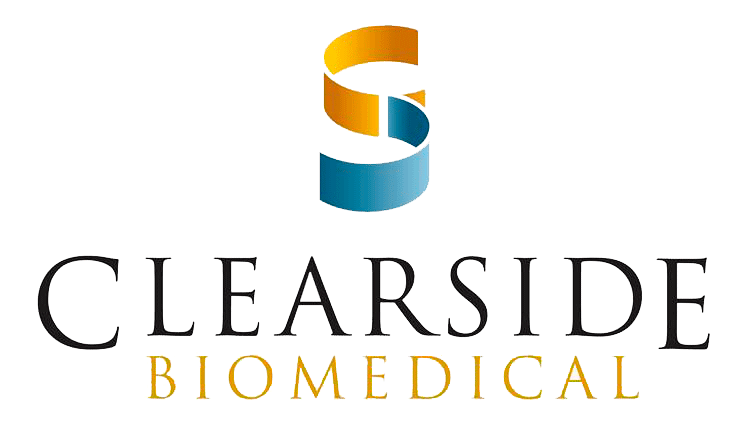
Clearside Biomedical, Inc. Reports Efficacy and Safety Results in Non-infectious Uveitis Using a Single Suprachoroidal Injection of Triamcinolone Acetonide
Print 16 March 2015
Patients Treated in the Clinical Trial Exhibited Improvement in Best Corrected Visual Acuity
No Meaningful Increases in IOP Observed; No Patient Required IOP-lowering Medication
 ALPHARETTA, Ga.--(BUSINESS WIRE)--Clearside Biomedical, Inc., a clinical-stage biopharmaceutical company developing first-in-class drug therapies to treat blinding diseases of the eye, today announced the efficacy and safety results from Clearside’s recently completed six-month Phase 1/2 clinical trial.
ALPHARETTA, Ga.--(BUSINESS WIRE)--Clearside Biomedical, Inc., a clinical-stage biopharmaceutical company developing first-in-class drug therapies to treat blinding diseases of the eye, today announced the efficacy and safety results from Clearside’s recently completed six-month Phase 1/2 clinical trial.
“Delivery of drug to the suprachoroidal space may provide therapeutic effect close to the source of retinal and choroidal pathology, which may in turn have an impact on the dose required to achieve a benefit, as well as on the duration of effect.”
In the trial, eight patients with non-infectious uveitis at three U.S. centers received a single suprachoroidal injection of a commercially available formulation of triamcinolone acetonide (TA) using Clearside’s proprietary microinjector. All patients were evaluated for safety and tolerability, in addition to being monitored for changes in best corrected visual acuity (BCVA) and retinal thickness.
During the course of the trial, patients showed improvement in BCVA ranging between one and 5 lines (or up to 25 letters). BCVA is measured on an Early Treatment of Diabetic Retinopathy Study (ETDRS) eye chart in which a line of improvement corresponds to five letters of improvement. When measured at week 12, the average improvement in BCVA exceeded two lines of improvement while at week 26 the average was close to three lines of improvement.
At weeks 12 and 26 of the trial, the average reduction in retinal thickness, which is a common measure for macular edema, for patients, was greater than 100 microns from their respective baselines; this reduction is considered meaningful. Macular edema is the most frequent cause of visual impairment among patients with uveitis.
Debra Goldstein, MD, Professor of Ophthalmology and Director, Uveitis Service at the Northwestern University Feinberg School of Medicine, commented, “Delivery of drug to the suprachoroidal space may provide therapeutic effect close to the source of retinal and choroidal pathology, which may in turn have an impact on the dose required to achieve a benefit, as well as on the duration of effect.”
The suprachoroidal injection of TA was generally safe and well tolerated in this trial. No patient in the trial experienced any meaningful increase in intraocular pressure (IOP) at any time point following the suprachoroidal injection of TA; therefore, no patients were required to use IOP-lowering medications in the trial. Historically, treating ophthalmic conditions with steroids has shown adverse effects, like increases in intraocular pressure that may lead to glaucoma and lens opacification. Based on these data, Clearside believes that the suprachoroidal administration of steroid in the eye using their proprietary microinjector may avoid or reduce some of these side effects that are commonly seen when steroids are delivered via eye drops or intravitreal injection.
About Uveitis
Uveitis is one of the most frequent causes of blindness in the developed world. Based on prevalence data published in the journal Ophthalmologyin 2004 and United States census data for 2010, Clearside estimates approximately 350,000 individuals in the United States suffer from some form of uveitis. Typically diagnosed in individuals between the ages of 20 and 50, uveitis can occur in one or both eyes and accounts for approximately 10% of cases of blindness in the United States, according to a study published in Journal of Ophthalmology. Uveitis can be either infectious or non-infectious. Non-infectious uveitis accounts for approximately 80% of all uveitis cases. Macular edema related to uveitis is the predominant cause of blindness or visual impairment among patients with uveitis, accounting for approximately 30% of cases of blindness in uveitis patients. Because uveitis can become chronic or recurrent if not adequately treated, some patients may become refractory, or unresponsive, to treatment, leading to irreversible blindness.
About Clearside Biomedical, Inc.
Clearside Biomedical, Inc., headquartered in Alpharetta, GA, is a clinical-stage biopharmaceutical company developing first-in-class drug therapies to treat chronic, blinding diseases of the eye. Clearside’s product candidates focus on diseases affecting the retina and the choroid, especially diseases associated with macular edema. Visit www.clearsidebio.com for more information.
All Portfolio
MEDIA CENTER
-
The RMI group has completed sertain projects
The RMI Group has exited from the capital of portfolio companies:
Marinus Pharmaceuticals, Inc.,
Syndax Pharmaceuticals, Inc.,
Atea Pharmaceuticals, Inc.

